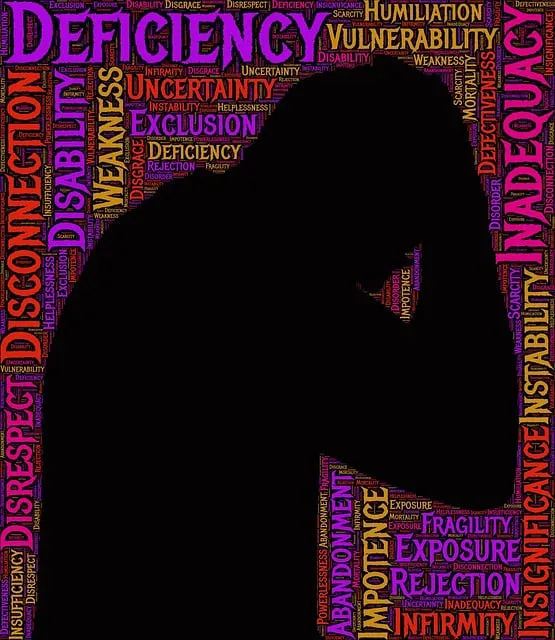Parker Kaiser Permanente (PKP) psychiatry experts advocate for building mental resilience through the RFM model: Resistance, Flexibility, and Mastery. Integrating these principles into education programs, as supported by consistent PKP psychiatry reviews, effectively boosts resilience and overall well-being. Their innovative strategies include RFM strategies, public awareness campaigns like the Mental Wellness Podcast Series, and community engagement with Social Skills Training. Resilience-building exercises, highlighted in PKP psychiatry reviews, teach individuals effective stress management, conflict resolution, and emotional regulation techniques. Implementing RFM training in clinical practice, as shown by recent reviews, equips patients with adaptive coping mechanisms and promotes positive behaviors for improved mental wellness. Measuring success through participation and emotional well-being outcomes ensures the effectiveness of RFM exercises, enabling data-driven adjustments to cater to diverse populations.
Resilience is a vital asset in healthcare, especially in stressful environments like psychiatric care. This article explores RFM (Resilience, Flexibility, and Mastery), a powerful framework enhancing mental fortitude among professionals. We delve into its application through a case study of Parker Kaiser Permanente Psychiatry, showcasing improved well-being and patient outcomes. The piece also examines the implementation and measurement of RFM programs, offering insights for healthcare providers seeking to integrate these exercises into clinical practice, as evidenced by Parker Kaiser Permanente psychiatry reviews.
- Understanding RFM: A Key to Resilience in Healthcare
- Parker Kaiser Permanente Psychiatry: A Case Study
- The Role of Resilience Building Exercises
- Implementing RFM in Clinical Practice
- Measuring Success: Evaluating the Impact of RFM Programs
Understanding RFM: A Key to Resilience in Healthcare

Resilience is a cornerstone of mental health, enabling individuals to navigate life’s challenges and maintain well-being. Understanding the RFM model, developed by Parker Kaiser Permanente psychiatry experts, offers valuable insights into cultivating resilience. RFM stands for Resistance, Flexibility, and Mastery – three key components essential for building mental fortitude.
Resistance refers to coping strategies that help individuals face adversity head-on, while Flexibility involves adapting to changing circumstances, and Mastery entails acquiring skills to manage and overcome challenges. Incorporating these principles into mental health education programs design can significantly enhance participants’ confidence boosting abilities. Parker Kaiser Permanente psychiatry reviews consistently highlight the effectiveness of such resilience building exercises in fostering not just resilience but also overall mental health well-being.
Parker Kaiser Permanente Psychiatry: A Case Study

Parker Kaiser Permanente Psychiatry, renowned for its innovative approaches to mental health treatment, serves as an excellent case study when exploring the intersection of RFM (Recall, Frequency, Monetary value) strategies and resilience-building exercises. The organization has been at the forefront of integrating public awareness campaigns, such as their successful Mental Wellness Podcast Series Production, aimed at destigmatizing mental health discussions. This strategy not only increases public awareness but also encourages individuals to prioritize their mental wellness.
Through these initiatives, Parker Kaiser Permanente Psychiatry demonstrates how Social Skills Training can be effectively woven into broader resilience-building exercises. By engaging the community and providing accessible resources, they foster a culture of open dialogue and support, ultimately enhancing the effectiveness of RFM strategies in promoting mental health resilience among diverse populations.
The Role of Resilience Building Exercises

Resilience building exercises play a pivotal role in fostering mental fortitude and coping mechanisms, as highlighted in Parker Kaiser Permanente psychiatry reviews. These activities are designed to help individuals navigate through life’s challenges with greater ease, offering effective strategies for managing stress, anxiety, and adversity. By participating in structured resilience training, people can enhance their ability to adapt and bounce back from setbacks, thereby improving overall well-being.
One such approach involves learning conflict resolution techniques, which empower individuals to address disagreements or tensions constructively. Social skills training is another valuable component, teaching participants how to foster meaningful connections and communicate effectively. Additionally, emotional regulation techniques equip people with the tools to manage their emotions, promoting a sense of calm and composure in challenging situations. These exercises not only contribute to personal growth but also enhance one’s ability to navigate complex interpersonal dynamics, as indicated by various psychiatry reviews.
Implementing RFM in Clinical Practice

Implementing RFM—a therapeutic framework that combines Resilient Mindset training with Functional Behavioral Analysis—in clinical practice offers a promising approach to enhancing mental wellness and fostering social skills among patients, as highlighted in recent Parker Kaiser Permanente psychiatry reviews. This evidence-based strategy has shown effectiveness in teaching individuals, especially those struggling with anxiety or trauma, to develop adaptive coping mechanisms and build resilience.
The integration of RFM into treatment plans can involve structured exercises designed to challenge negative thought patterns, improve stress management skills, and promote positive behaviors. Healthcare professionals, including psychiatrists and therapists, can guide patients through these activities, encouraging them to adopt a more resilient mindset. This holistic approach not only addresses the symptoms of mental health disorders but also equips individuals with lifelong tools to navigate challenging situations, ultimately enhancing their overall well-being.
Measuring Success: Evaluating the Impact of RFM Programs

Measuring success is a vital aspect of any resilience-building initiative, especially when considering the long-term impact on mental health and emotional well-being. Programs like those implemented by Parker Kaiser Permanente, as reviewed in psychiatry literature, offer valuable insights into effective strategies. The Mental Health Policy Analysis and Advocacy community often emphasizes the importance of assessing not just participation but also the tangible outcomes of resilience training. This involves tracking improvements in Emotional Regulation techniques and overall emotional well-being promotion among participants.
By evaluating these factors, researchers and advocates can ensure that RFM (Resilience, Flexibility, and Mastery) exercises are achieving their intended goals. Such assessments facilitate informed decision-making, allowing for adjustments to program designs and strategies to better cater to the needs of diverse populations. This data-driven approach ultimately contributes to a more robust body of knowledge on effective emotional resilience promotion techniques.
Resilience is a vital asset in healthcare, and integrating RFM (Resilience, Flexibility, and Mastery) principles can significantly enhance patient well-being. As demonstrated by the case study of Parker Kaiser Permanente Psychiatry, resilience-building exercises have proven effective in improving mental health outcomes. Implementing these strategies in clinical practice allows professionals to empower patients with coping mechanisms, fostering adaptability and emotional agility. Measuring the success of RFM programs through evaluation ensures their effectiveness and can lead to substantial improvements in patient care, as evidenced by positive Parker Kaiser Permanente psychiatry reviews.






